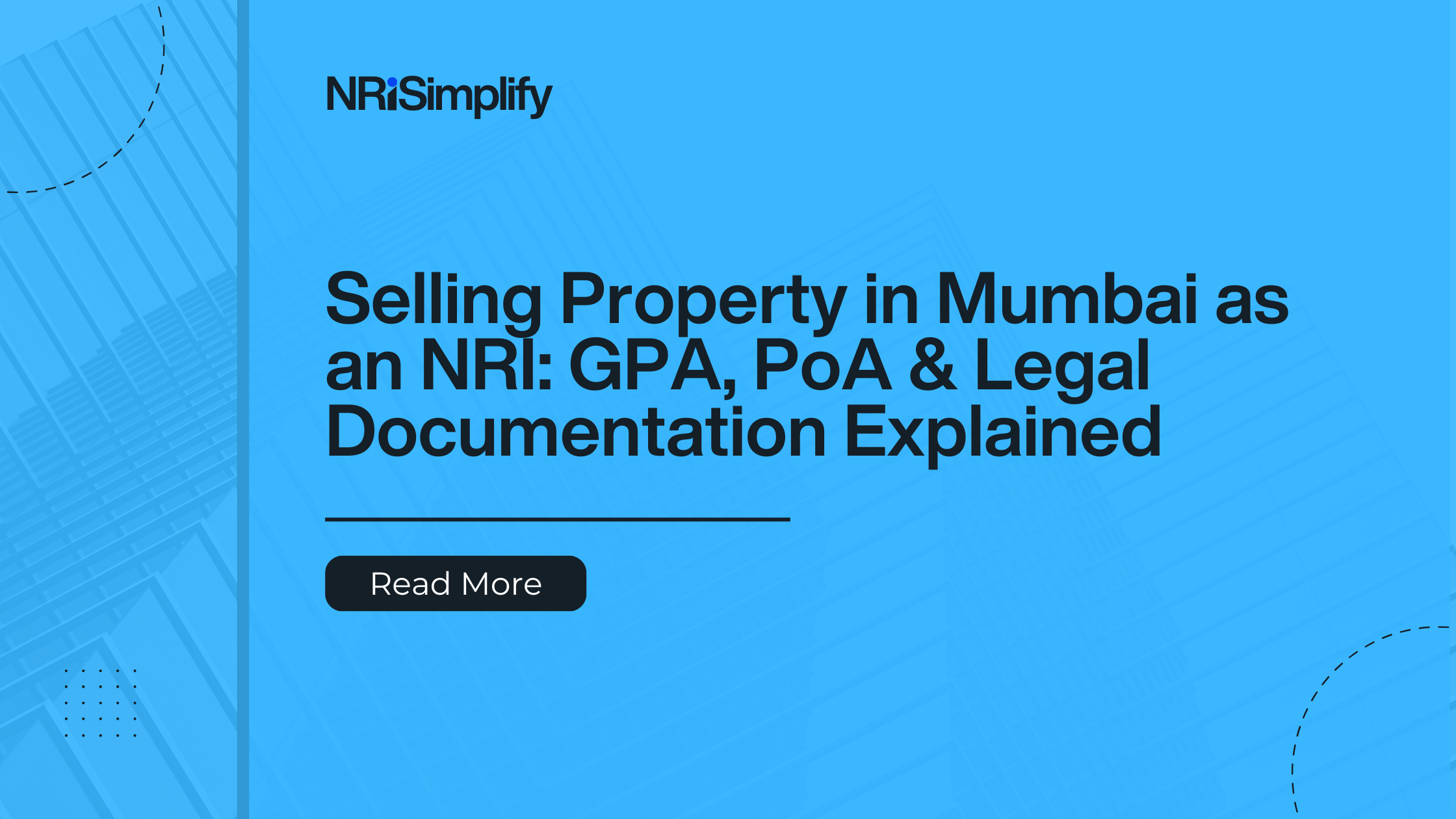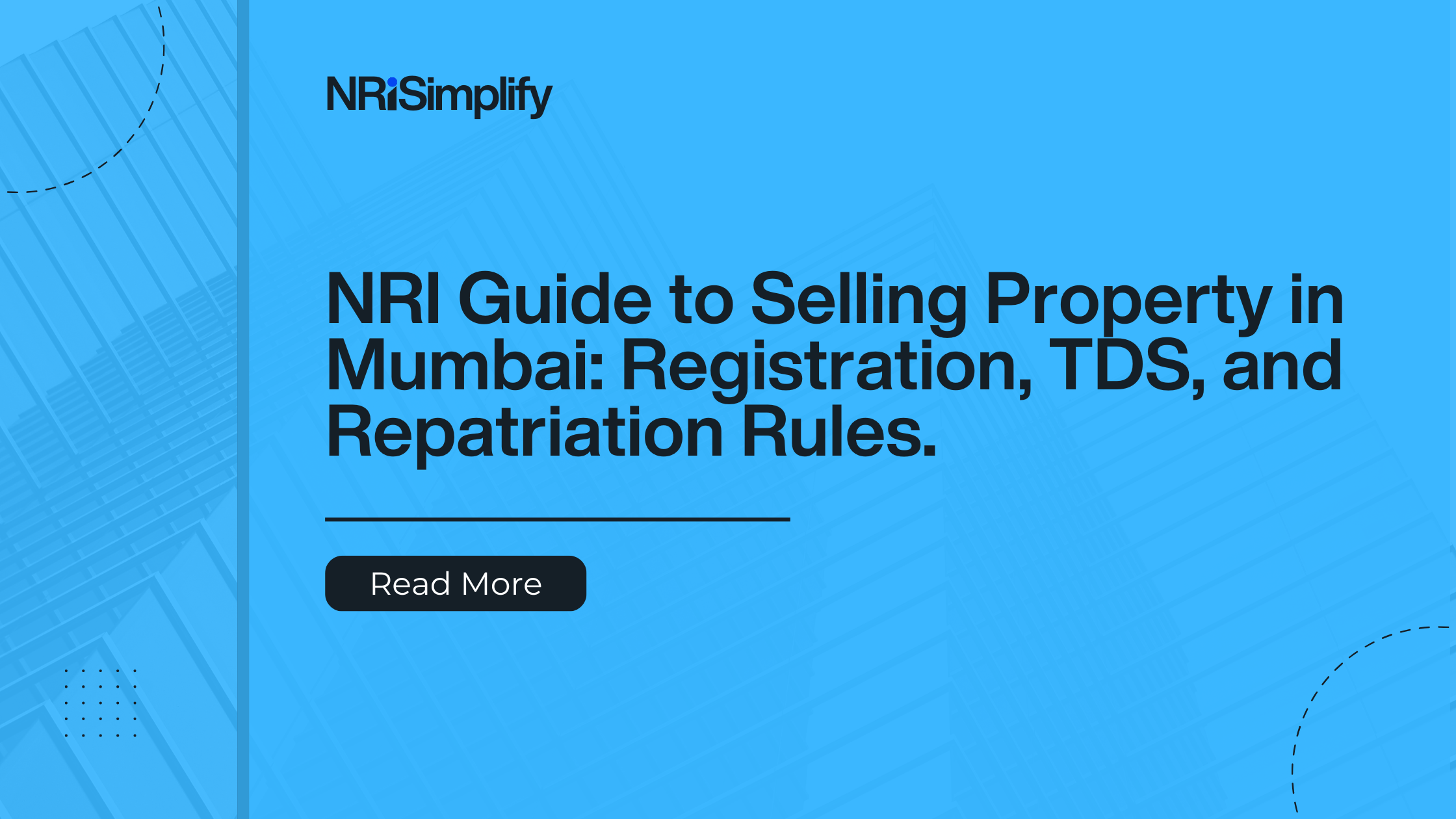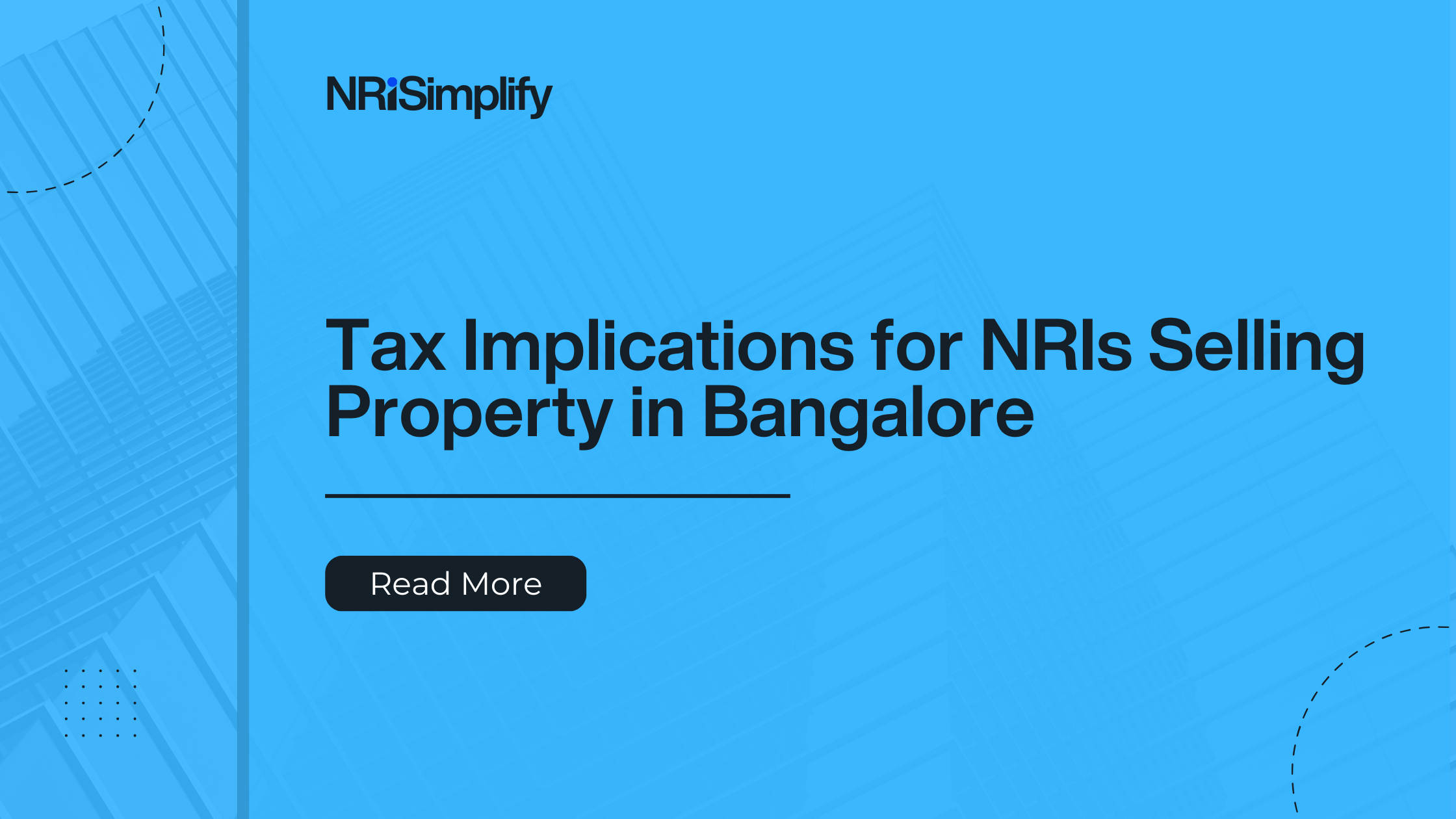If you’re a Non-Resident Indian (NRI) with property in Mumbai (residential or commercial), and you’re considering selling it, you’re navigating a landscape of legal, tax and procedural nuances. This guide walks you through what you need to know in October 2025 — specifically focusing on the role of a General Power of Attorney (GPA), a Special Power of Attorney (PoA/SPA), and the legal documentation required under Indian law including the latest tax, TDS, repatriation and regulatory rules.
1. Can an NRI sell property in India and what types of property?
-
NRIs can sell residential and commercial properties in India.
-
However, there are restrictions: for example agricultural land, plantation property or farmhouses (if acquired as an NRI) often cannot be sold to another NRI/OCI.
-
In the Mumbai / Maharashtra context, you must ensure clear title, proper registration, stamp duty paid and compliance with the state sub-registrar norms (which may have local peculiarities).
2. Why a GPA or PoA matters for NRIs
Since you may not be physically present in India, appointing a reliable representative becomes critical.
-
A GPA (General Power of Attorney) gives broad authority to a representative.
-
A SPA/Specific PoA restricts the authority to a particular task — say the sale of one property only.
-
For property sale, you’ll often see a PoA executed abroad by the NRI, notarised/Apostilled/Indian Consulate attested, then sent to India for stamping/registration.
-
Important caution: A PoA by itself does not transfer title. A sale deed executed by the seller (or authorised attorney) and registered with the Sub-Registrar is mandatory.
-
If you delegate via a PoA, ensure the scope is clearly defined (which property, what powers, sale price threshold etc.) and you trust the appointed person.
3. Step-by-step: Using a GPA/PoA for property sale in Mumbai
Here’s a typical workflow relevant for an NRI seller:
-
Select your attorney/agent in India – someone you trust (family member/close associate).
-
Draft the PoA: specify exact property (address, survey/flat no.), powers granted, duration, revocation clause. Use legal counsel.
-
Execute abroad: In your country of residence sign the PoA, get notarised + attested by Indian Consulate/Apostille if relevant.
-
Send original PoA to India: via secure courier.
-
Stamp duty and registration in India: The attorney will visit the Sub-Registrar’s office (in Maharashtra) to register the PoA (though sometimes registration of PoA is optional, but for immovable property sale it is strongly advisable and in many states mandatory).
-
Buyer diligence & sale deed: The buyer will perform due diligence (title search, encumbrance-check etc) and then execute agreement for sale + sale deed. Once sale deed is executed and registered, ownership transfers.
-
Tax/TDS & repatriation compliance: Ensure that tax liabilities (capital gains, TDS) are addressed, and funds repatriated via proper banking channels (if applicable).
-
Revoke PoA: After sale, revoke the PoA so no residual authority remains.
4. Legal Documentation Checklist
Here are the key documents you’ll need:
-
Title deed / ownership proof (purchase deed, previous sale deed)
-
Encumbrance certificate (covering past ~13 years)
-
Property tax receipts up to date
-
No outstanding dues on the property (maintenance, society, utilities)
-
Your PAN, Aadhaar (if applicable) and overseas address proof
-
NRI status proof (passport, overseas residence)
-
PoA document (original), duly executed & registered
-
Sale agreement (if applicable) & Sale deed registered at Sub-Registrar
-
Buyer’s payment proof via banking channel
-
TDS certificate (if buyer deducts TDS)
-
For repatriation: Form 15CA/15CB (if funds leaving India) etc.
-
compliance with Foreign Exchange Management Act (FEMA) and Reserve Bank of India (RBI) norms for NRIs.
5. Taxation & TDS: What NRIs must know (2025 update)
-
As of October 2025, if you are an NRI selling property in India: the capital gains tax rules have new contours.
-
If property is held more than 24 months → qualifies as Long-Term Capital Gain (LTCG).
-
For transfers on or after 23 July 2024: LTCG tax rate for NRIs is 12.5% flat (plus surcharge/cess) without indexation benefit.
-
For transfers before that date: you may have option of 20% with indexation benefit depending on context.
-
Short-Term Capital Gain (STCG): If held ≤ 24 months, taxed at applicable slab rate; TDS generally at higher rate (~30%).
-
TDS: Buyer (resident Indian) must deduct TDS before payment to you. For NRIs: if LTCG after July 23 2024, TDS at ~12.5%.
-
Repatriation: NRIs can repatriate proceeds up to USD 1 million per financial year under certain conditions.
-
Double Taxation: If you live abroad (e.g., U.S.) you must report capital gains in your resident country too; check DTAA (Double Taxation Avoidance Agreement).
-
Important: Keep all sale and TDS evidence safe — improper TDS deduction can cause huge hassles (see recent case).
6. Repatriation & FEMA/RBI Rules
-
The sale proceeds should move through banking channels: your NRO/NRE account or as per the bank’s guidance.
-
FEMA rules: For NRIs, any repatriation must comply with RBI regulations and proof of tax paid must be provided.
-
Up to USD 1 million per financial year can be repatriated (subject to conditions) without separate RBI approval in many cases.
-
Maintain audit trail: sale deed, TDS certificate, bank remittances, Form 15CA/15CB if required — because any deficiency can block outward remittance.
7. Mumbai / Maharashtra-specific considerations
-
Stamp duty and registration fees in Maharashtra must be accounted for when executing sale deed.
-
The Sub-Registrar office in Mumbai will insist on original documents, ID proofs, etc; ensure your PoA / attorney has full authority and registration done.
-
Given high property values in Mumbai, due diligence is vital (title search, encumbrance certificate etc).
-
Market value often compared with the Ready Reckoner rate; undervaluation may trigger additional stamp duty/penalties — important especially for the buyer side.
-
Local municipal transfer and society clearance (if flat) also matter.
8. Common pitfalls & how to avoid them
-
Poorly-drafted PoA: vague scope, no registration, leads to disputes.
-
Unregistered PoA: For property sale it may be challenged.
-
Travel & presence assumption: Even though you’re abroad, certain steps may require presence of your attorney locally — keep communication strong.
-
Missing TDS deduction or wrong certificate: Buyer fails to deduct correct TDS or uses wrong form → you may lose credit.
-
Ignoring tax changes: The change in LTCG rules (12.5% without indexation) means you could face higher tax if you’re unaware.
-
Repatriation non-compliance: Funds stuck in India due to paperwork missing.
-
Title issues: Encumbrance or ownership disputes are more likely in old Mumbai properties — get legal support.
-
Under-valuation of sale: To avoid higher stamp duty, but this can invite scrutiny and penalties.
Conclusion
Selling property in Mumbai as an NRI is absolutely feasible — but it demands care, documentation, and compliance. With the changes in tax rules (especially LTCG from July 2024) and repatriation + PoA complexities, being proactive is key. Use a trusted attorney in India, get your PoA/registration right, stay on top of tax/TDS, and you’ll greatly reduce risks and delays.
If you’d like a downloadable checklist / PoA draft template or specific state-wise stamp duty info for Maharashtra, I can prepare that next. Would you like me to put that together?







